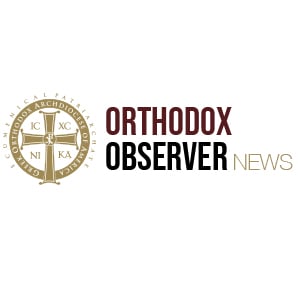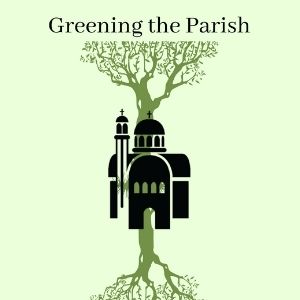Beheading of the Holy and Glorious Prophet, Forerunner and Baptist John
The divine Baptist, the Prophet born of a Prophet, the seal of all the Prophets and beginning of the Apostles, the mediator between the Old and New Covenants, the voice of one crying in the wilderness, the God-sent Messenger of the incarnate Messiah, the forerunner of Christ's coming into the world (Esaias 40: 3; Mal. 3: 1); who by many miracles was both conceived and born; who was filled with the Holy Spirit while yet in his mother's womb; who came forth like another Elias the Zealot, whose life in the wilderness and divine zeal for God's Law he imitated: this divine Prophet, after he had preached the baptism of repentance according to God's command; had taught men of low rank and high how they must order their lives; had admonished those whom he baptized and had filled them with the fear of God, teaching them that no one is able to escape the wrath to come if he do not works worthy of repentance; had, through such preaching, prepared their hearts to receive the evangelical teachings of the Savior; and finally, after he had pointed out to the people the very Savior, and said, "Behold the Lamb of God, Which taketh away the sin of the world" (Luke 3:2-18; John 1: 29-36), after all this, John sealed with his own blood the truth of his words and was made a sacred victim for the divine Law at the hands of a transgressor.
This was Herod Antipas, the Tetrarch of Galilee, the son of Herod the Great. This man had a lawful wife, the daughter of Arethas (or Aretas), the King of Arabia (that is, Arabia Petraea, which had the famous Nabatean stone city of Petra as its capital. This is the Aretas mentioned by Saint Paul in II Cor. 11:32). Without any cause, and against every commandment of the Law, he put her away and took to himself Herodias, the wife of his brother Philip, to whom Herodias had borne a daughter, Salome. He would not desist from this unlawful union even when John, the preacher of repentance, the bold and austere accuser of the lawless, censured him and told him, "It is not lawful for thee to have thy brother's wife" (Mark 6: 18). Thus Herod, besides his other unholy acts, added yet this, that he apprehended John and shut him in prison; and perhaps he would have killed him straightway, had he not feared the people, who had extreme reverence for John. Certainly, in the beginning, he himself had great reverence for this just and holy man. But finally, being pierced with the sting of a mad lust for the woman Herodias, he laid his defiled hands on the teacher of purity on the very day he was celebrating his birthday. When Salome, Herodias' daughter, had danced in order to please him and those who were supping with him, he promised her -- with an oath more foolish than any foolishness -- that he would give her anything she asked, even unto the half of his kingdom. And she, consulting with her mother, straightway asked for the head of John the Baptist in a charger. Hence this transgressor of the Law, preferring his lawless oath above the precepts of the Law, fulfilled this godless promise and filled his loathsome banquet with the blood of the Prophet. So it was that that all-venerable head, revered by the Angels, was given as a prize for an abominable dance, and became the plaything of the dissolute daughter of a debauched mother. As for the body of the divine Baptist, it was taken up by his disciples and placed in a tomb (Mark 6: 21 - 29). Concerning the finding of his holy head, see February 24 and May 25.






 In honor of the 200th year anniversary of Greek independence, the Department of Inter-Orthodox, Ecumenical and Interfaith Relations, will release a video the 25th of each month as part of the “Faith in Freedom” series.
In honor of the 200th year anniversary of Greek independence, the Department of Inter-Orthodox, Ecumenical and Interfaith Relations, will release a video the 25th of each month as part of the “Faith in Freedom” series.
 This week’s “How-to” Green Your Parish episode features V. Rev. Tony Vrame “Creation Care in Religious Education”
This week’s “How-to” Green Your Parish episode features V. Rev. Tony Vrame “Creation Care in Religious Education”
 New York, NY – Today, His Eminence Archbishop Elpidophoros of America announced his appointment for the new proïstamenos (presiding priest) for the Saint Nicholas Greek Orthodox Church and National Shrine: The Reverend Protopresbyter Andreas Vithoulkas, the Chancellor of the Greek Orthodox Archdiocese of America.
New York, NY – Today, His Eminence Archbishop Elpidophoros of America announced his appointment for the new proïstamenos (presiding priest) for the Saint Nicholas Greek Orthodox Church and National Shrine: The Reverend Protopresbyter Andreas Vithoulkas, the Chancellor of the Greek Orthodox Archdiocese of America.
 The Greek Orthodox Archdiocese announces that, following the launching of the Greece Fires Relief Fund, and the call of His Eminence Archbishop Elpidophoros for parishes to take a special collection for the effort, that over $750,000 has been raised in order to provide support and long-term assistance to the many individuals and businesses that have suffered as a result of the devastating fires.
The Greek Orthodox Archdiocese announces that, following the launching of the Greece Fires Relief Fund, and the call of His Eminence Archbishop Elpidophoros for parishes to take a special collection for the effort, that over $750,000 has been raised in order to provide support and long-term assistance to the many individuals and businesses that have suffered as a result of the devastating fires.